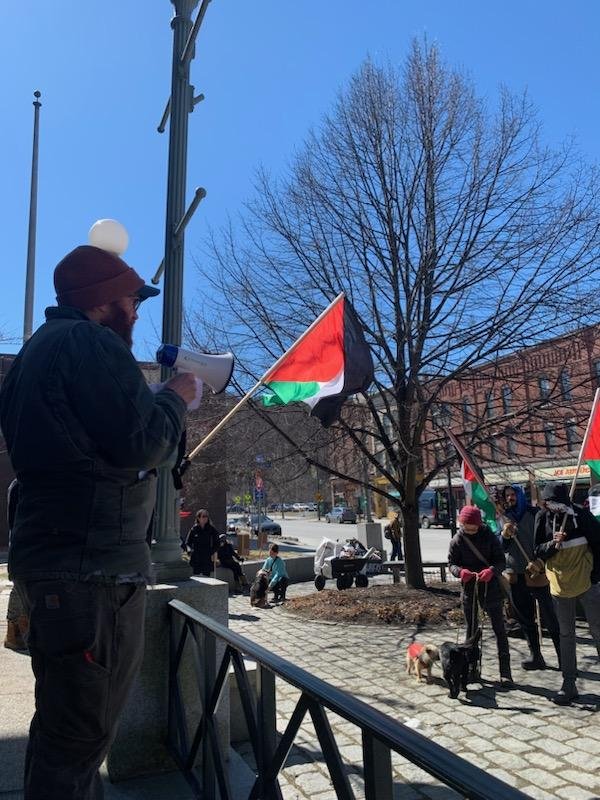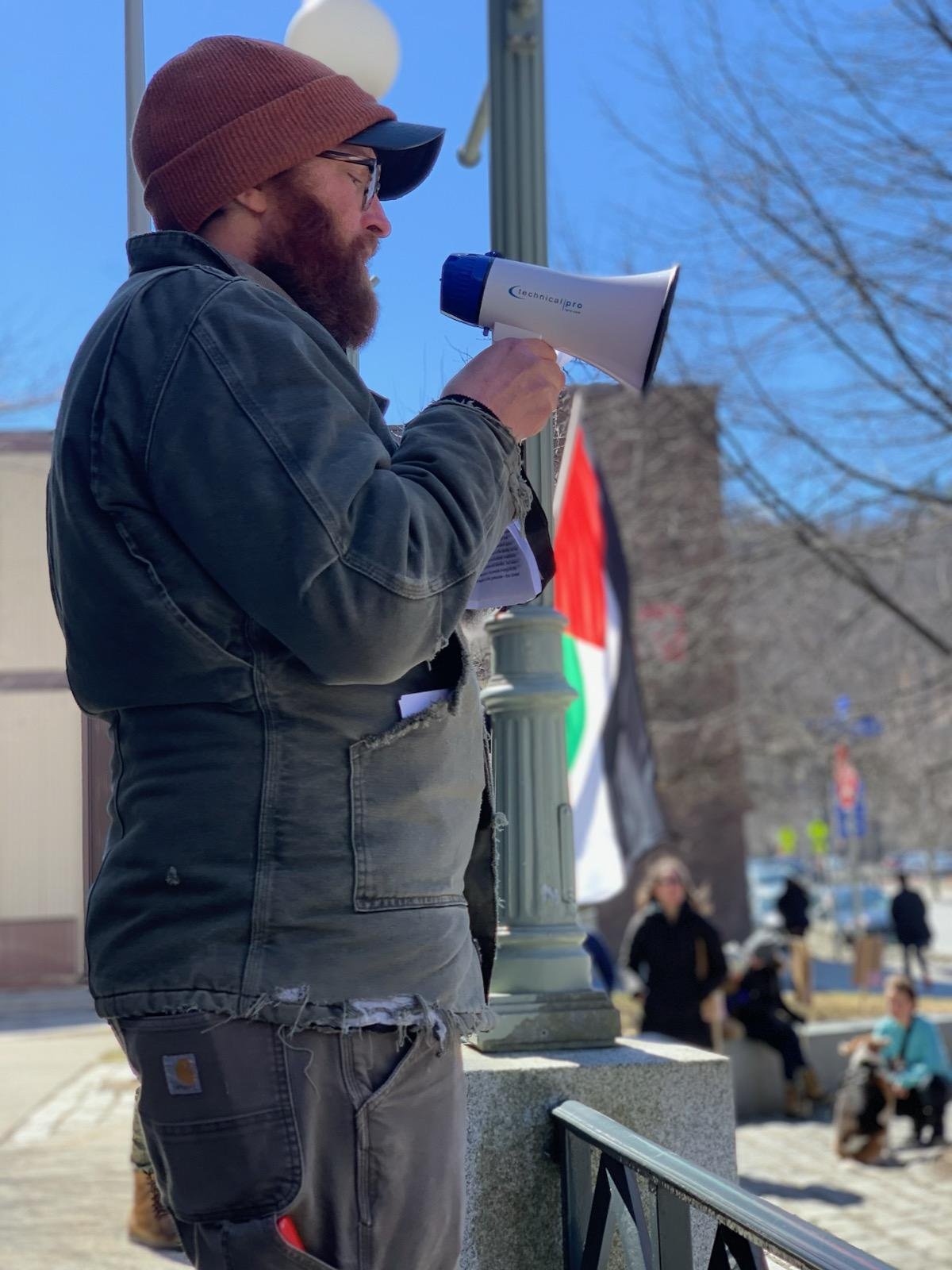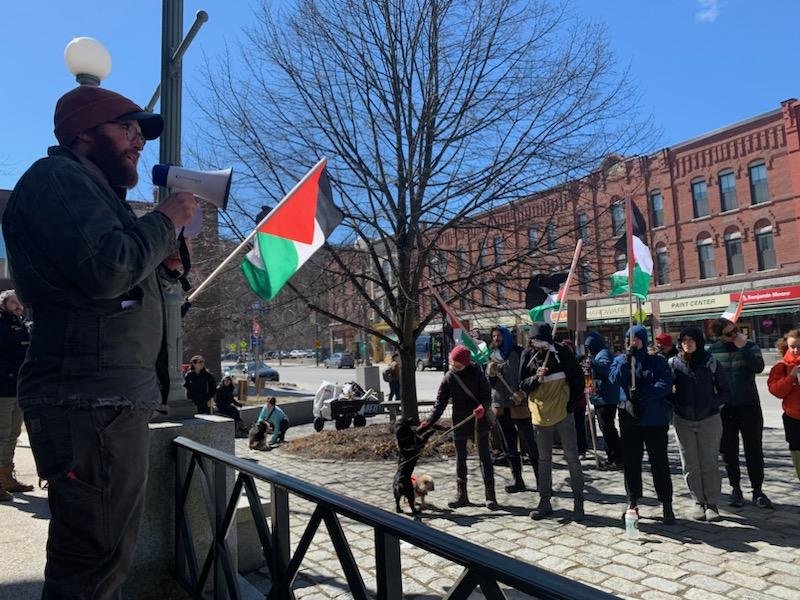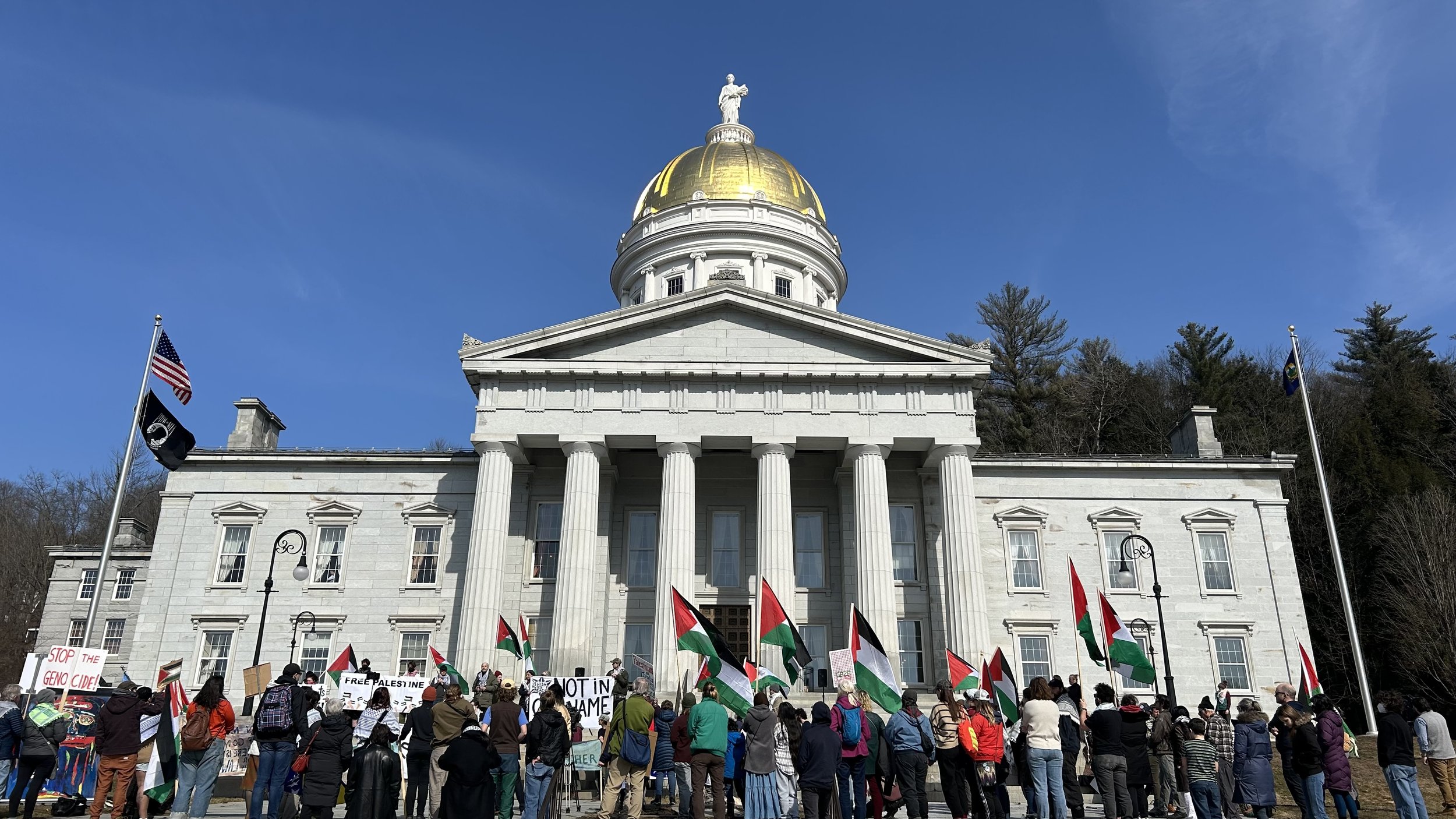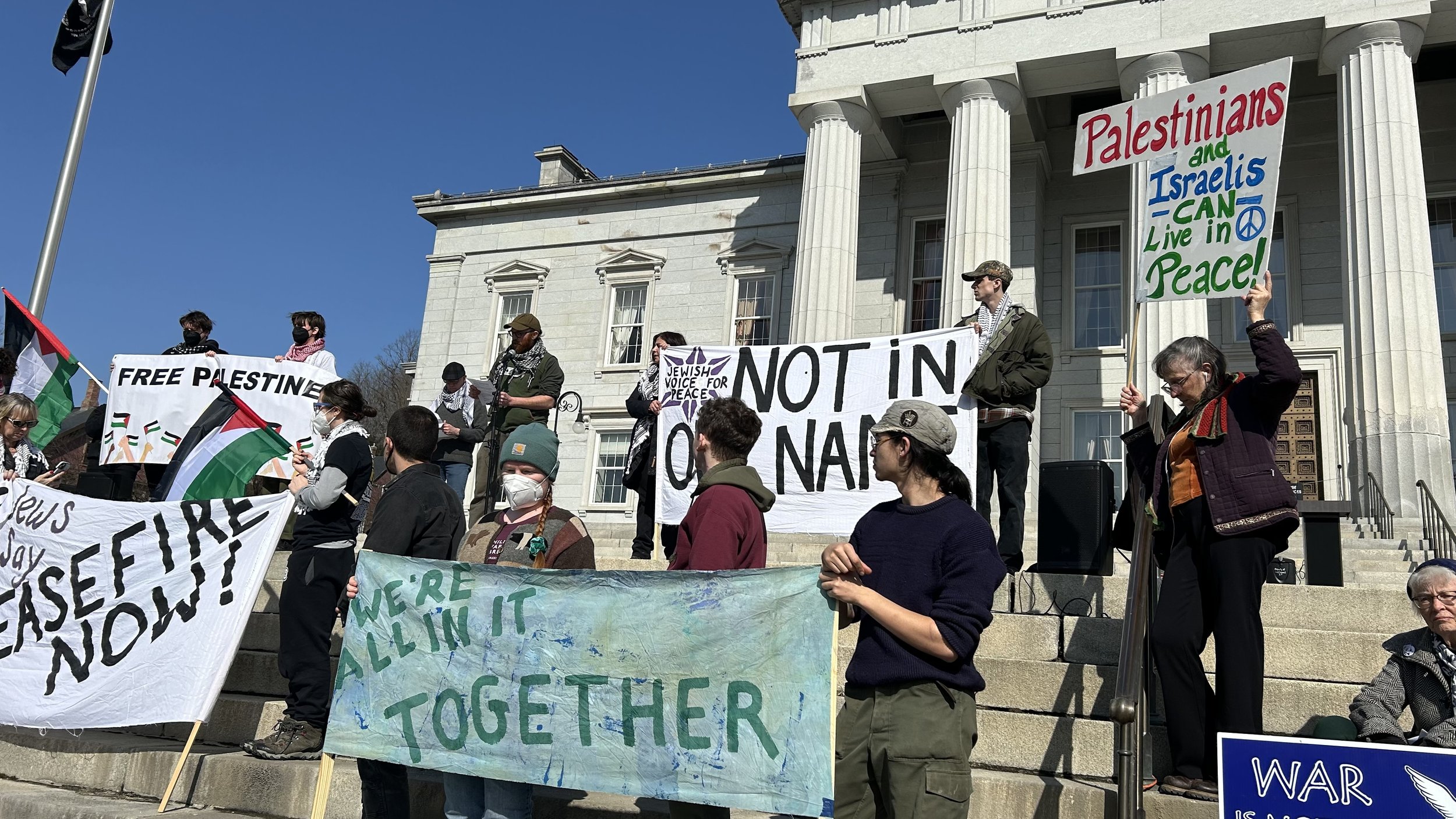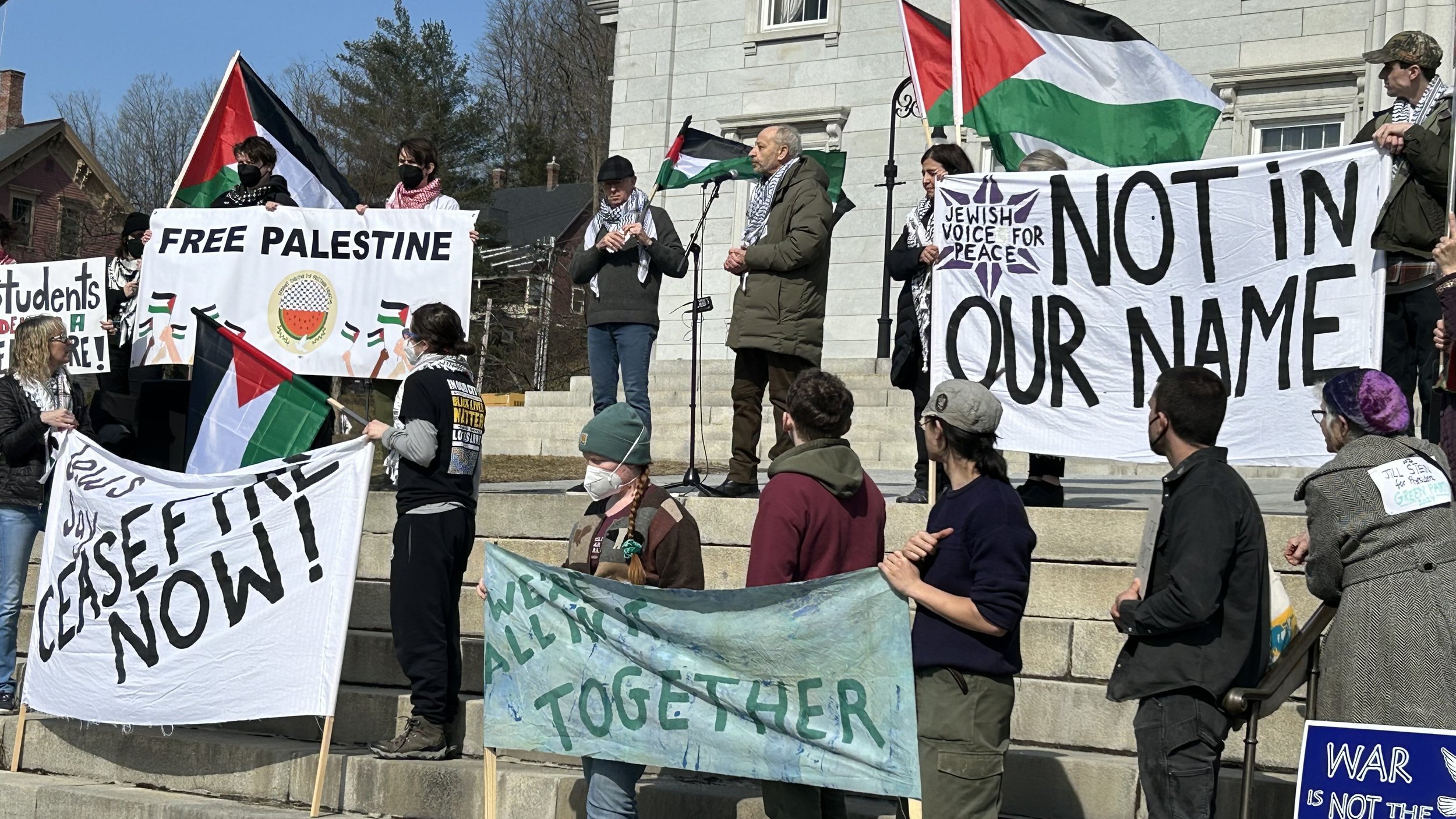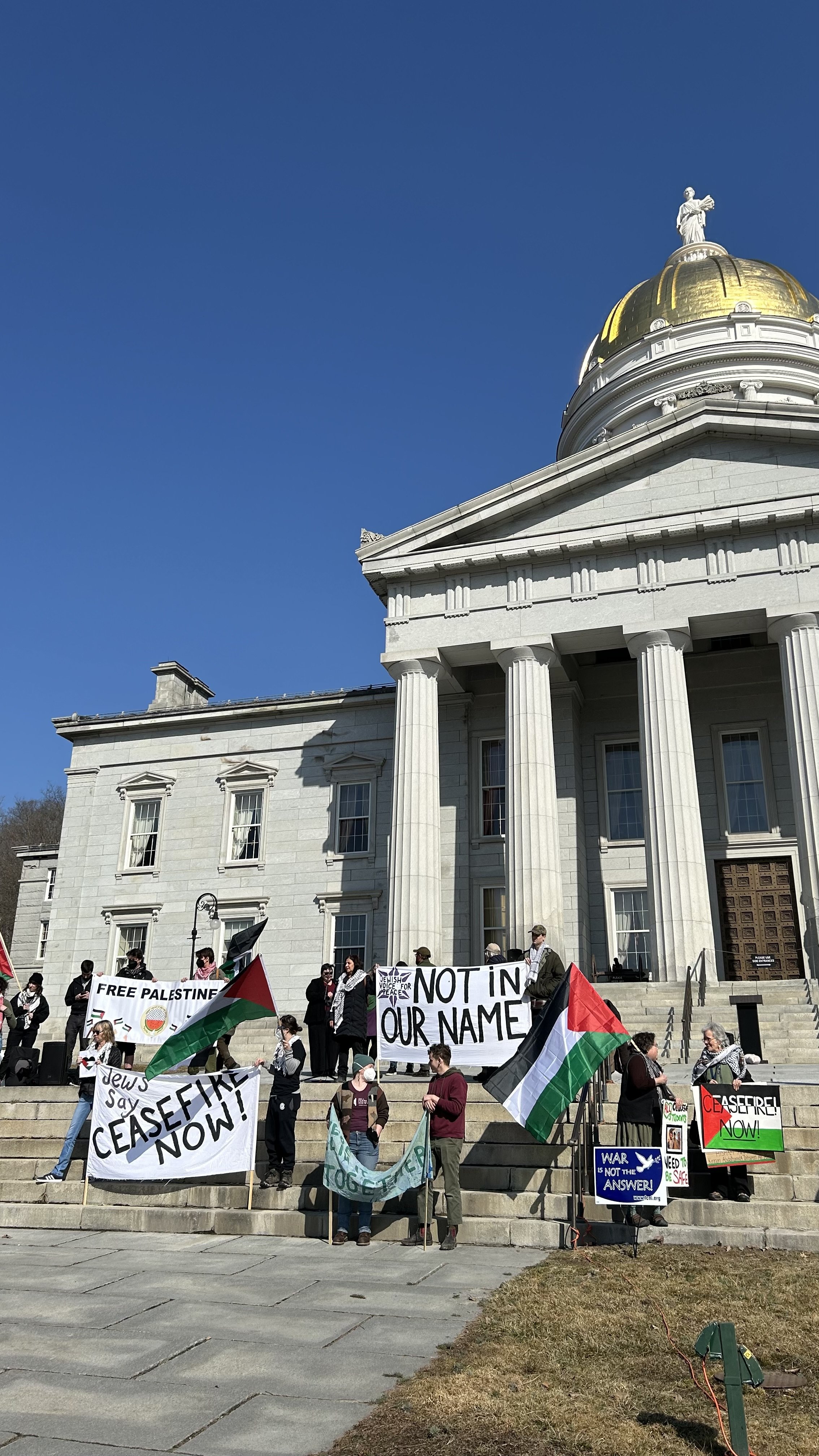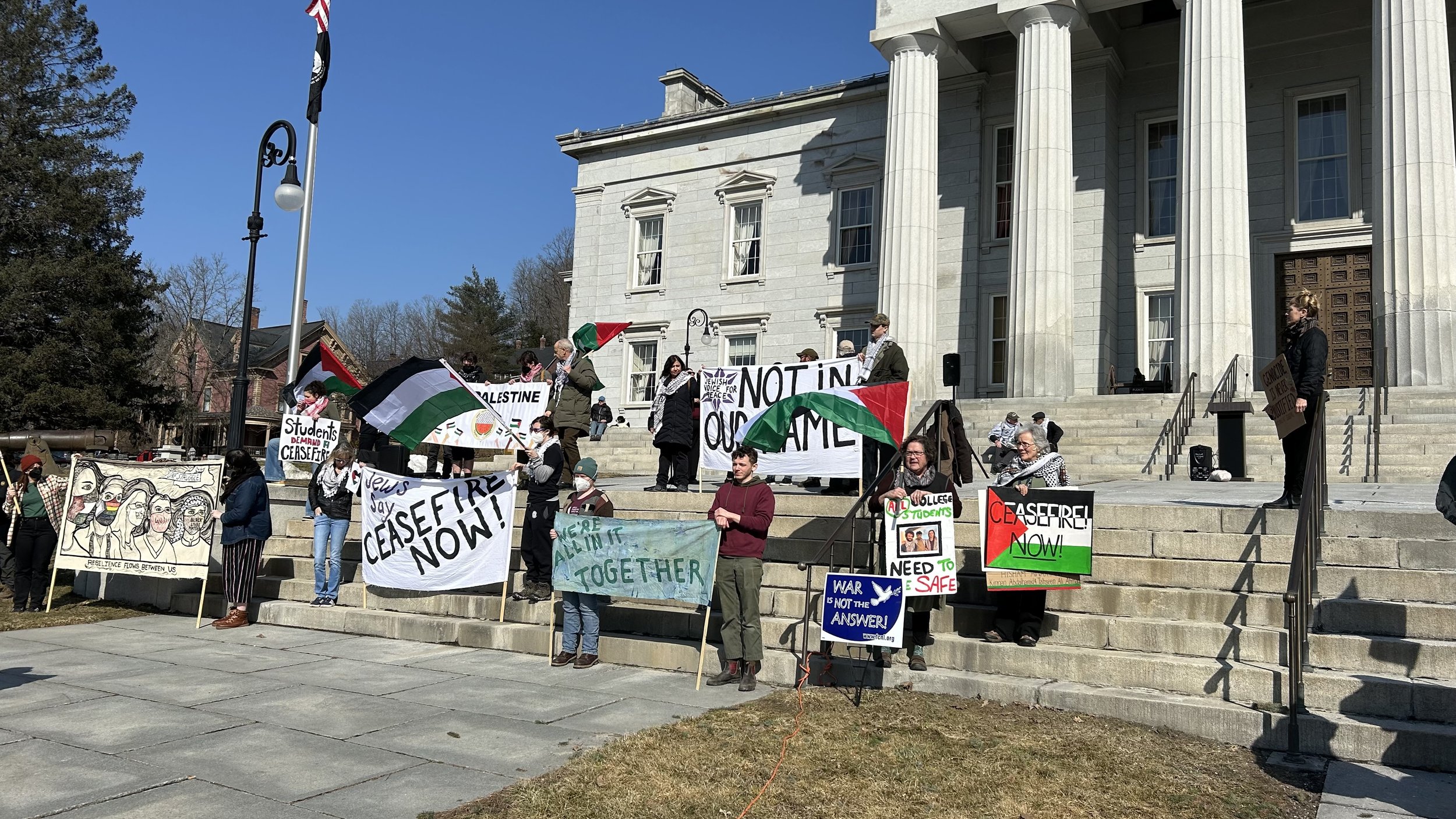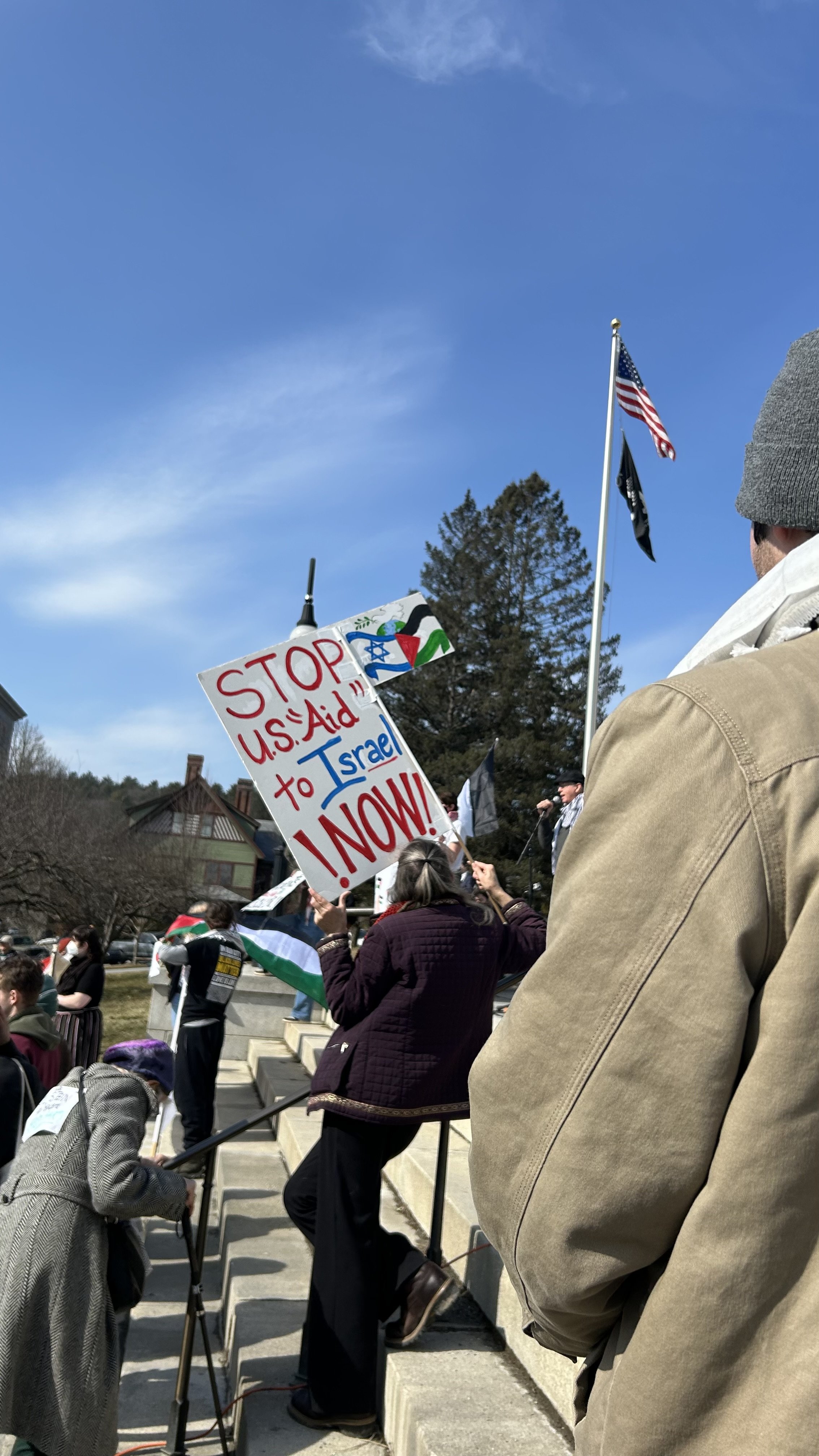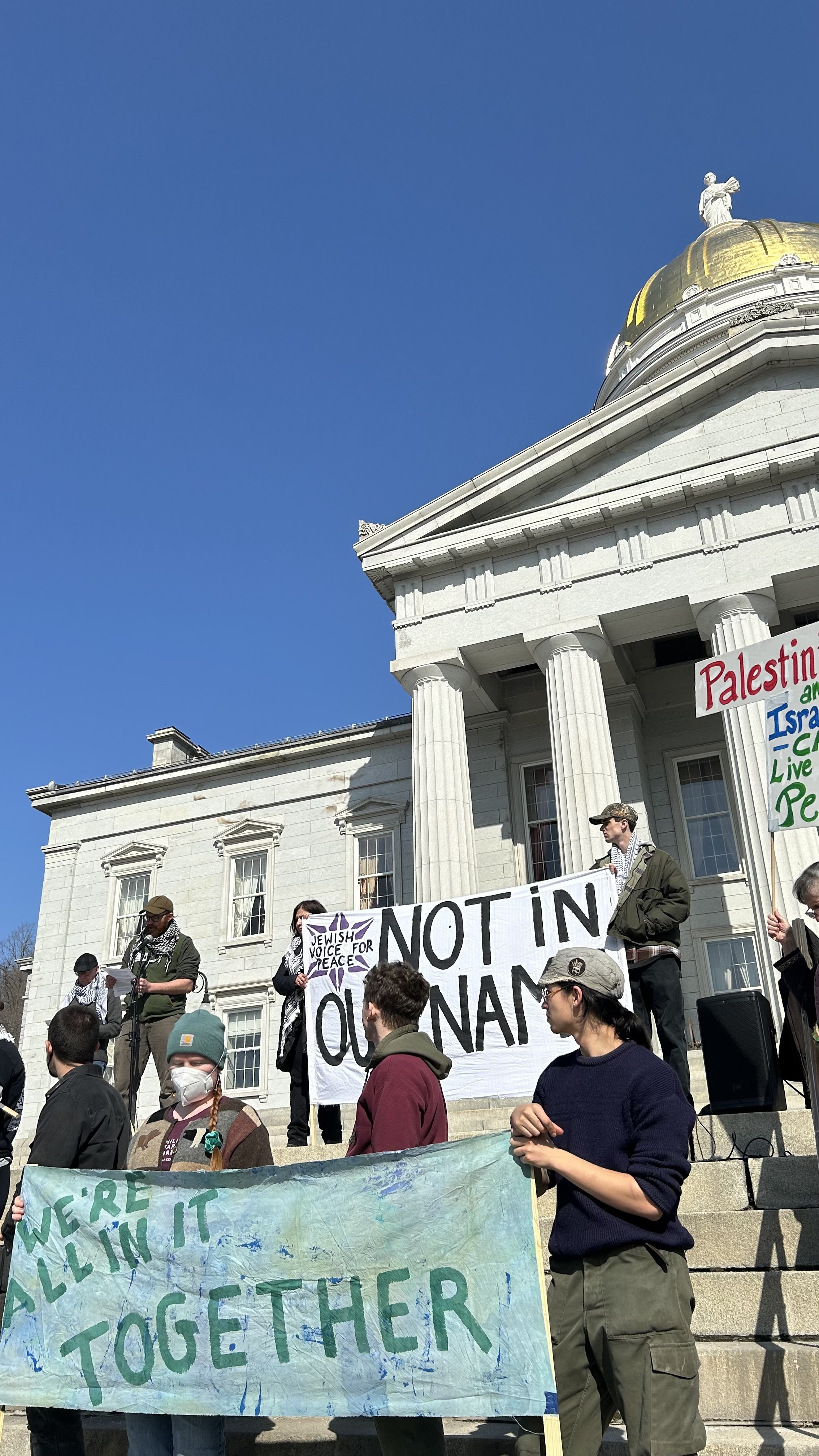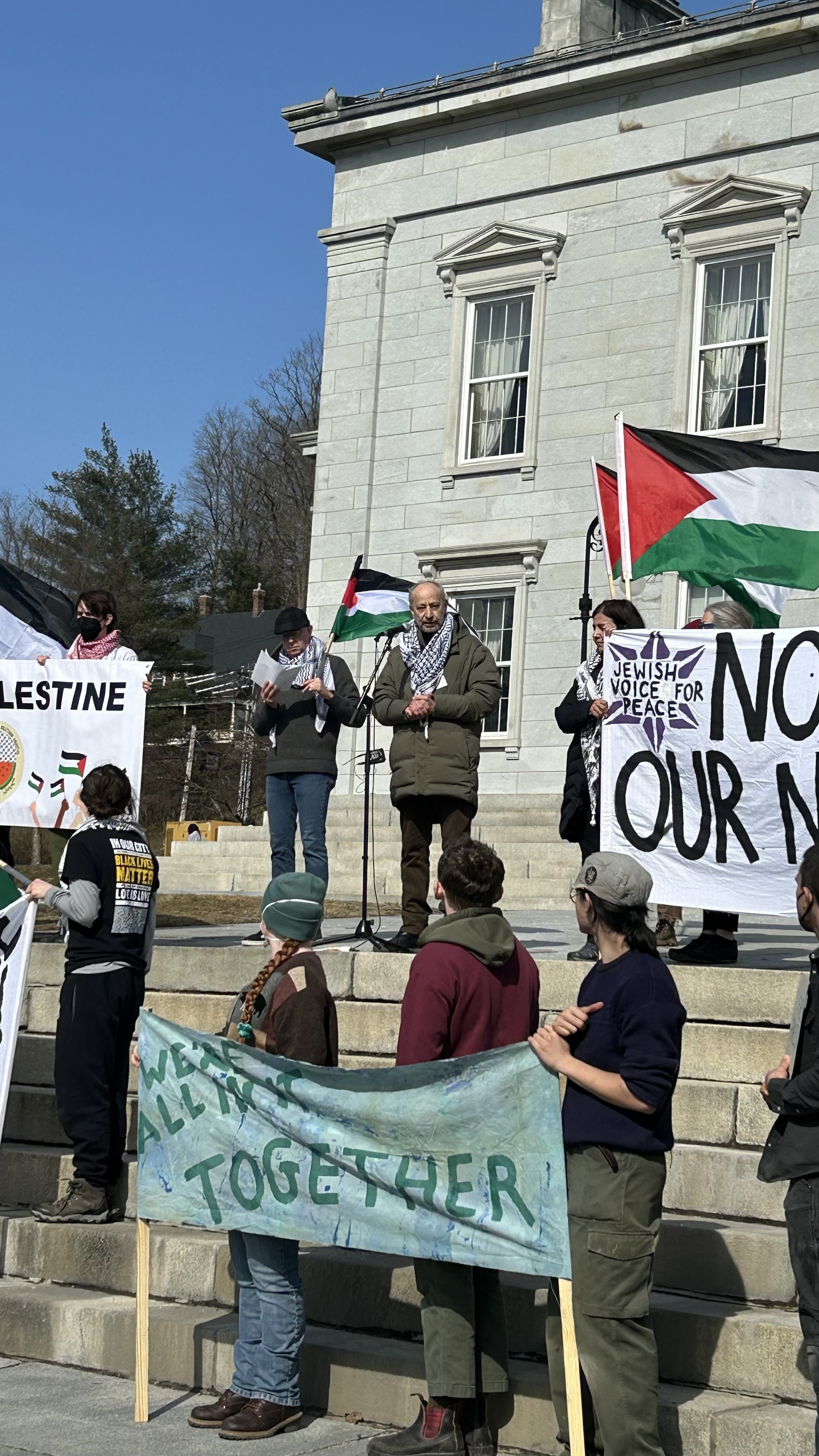The Palestinian Land Day Sapling Planting and Rally in Montpelier on Saturday, March 30th was one of several events hosted across Vermont to oppose Israel's genocidal war in Gaza, and to stand with Palestinians in their struggle for liberation. Graham Unangst-Rufenacht, Rural Vermont’s Policy Director, along with several others, was asked to speak to the connections between food sovereignty, human rights, and democracy.
My name is Graham Unangst-Rufenacht, I am the Policy Director at Rural VT - a nearly 40 year old member based organization working for food justice and food sovereignty through organizing, education, and advocacy. Through our membership in the National Family Farm Coalition, we are also a member organization of La Via Campesina - one of the largest social movement organizations in the world, and an organization which includes at least one Palestinian member organization: the Union of Agricultural Work Committees, (UAWC), a grassroots organization working in Gaza and the West Bank to rehabilitate lands destroyed by the Israeli occupation, preserve native seeds and support farmers.
Inherent to food sovereignty is an explicit focus on environmental justice, human rights, democracy, the rights of food, peasants and indigenous peoples, territorial rights, internationalism and solidarity.
We are here today in honor and celebration of Palestinian Land Day. We recognize the more than 100 year history of Palestinian land dispossession, food and crop destruction, prohibition and barriers to agricultural land and fisheries (prior to Oct. 7, the Israeli occupation had created a military exclusion zone on almost half of Gaza’s arable land, and a maritime buffer zone that allows access to barely 15% of the Mediterranean), theft and pollution of water and aquifers, ethnic cleansing, starvation, blockade and now seige, and systemic racism, violence, and genocide. We are also here to recognize, honor, and stand in solidarity with the resilience of the Palestinian peoples, of their relationships with the land and waters; with their right to resist occupation, apartheid, forced displacement, systemic racism and genocide; with their right to return, to reparations, remunerations, and self determination.
Food Sovereignty is the right of communities to choose where and how their food is produced, and what food they consume. It centers food, agriculture, and relationship to land and plants and animals and waters as not only essential aspects of our lives which keep us alive, but as fundamental aspects of our individual and cultural identities and legacies. As a member organization of the National Family Farm Coalition and signatories of the Nyeleni Declaration in 2007, we affirm the Declaration’s position that,
“Food sovereignty is challenged by repression and state terrorism, particularly as conflicts affect communities' control over territories. This limits their access to land, water, food and excludes their participation in decision-making. For peoples living under occupation, self-determination and local autonomy become crucial in order to achieve food sovereignty”
Vivien Sansour, of the Palestine Heirloom Seed Library, tells us that, “The soil has become so toxic because of the amount of bombs, from white phosphorus to all kinds of other ammunition…a lot of our trees, which, for us, our trees are part of our family, they are part of our kin, and they are being destroyed, too.” Between the years 2000 and 2012 (according ot the Palestinian Ministry of Agriculture), the Israeli occupation destroyed more than 3,000,000 fruit and olive trees to displace Palestinian farmers. Trees which span generations of Palestinians who have tended them, many of which were older than the state of Israel itself. Some 100,000 Palestinian families that depend on olive production have been unable to access their lands for the harvest over the past 6 months, in Gaza and in the West Bank primarily, due to attacks by the Israeli military and settlers, who have had thousands of assault rifles distributed to them by the Israeli government since Oct. 7th. These attacks by settlers and the Israeli military - using weapons often supplied by the US - have been ongoing for decades. For the past 15 years the UAWC has been running an Olive Harvest Campaign to bring volunteers (often from Europe and Latin America) to assist farmers during the harvest, and to provide some means of witness and protection to Palestinians harvesting and their communities and farms. But this year, much of this aid was not able to be provided given the level of violence in Occupied Palestine.
As Leah Penniman has highlighted in her lectures and classes for years, it was Malcolm x who said: ““Revolution is based on land. Land is the basis of all independence. Land is the basis of freedom, justice, and equality.” The other side of the coin is that Imperialism, colonialism, and the destruction of culture and subjugation of peoples is dependent upon separation from land, and the inhibition or prohibition of the ability to have independent connection and relationship to land and cultural traditions related to land as not only a source of sustenance and shelter, but also a fundamental source of identity and inspiration. As people living at the center of a global empire which is a partner in this genocide - the United States - it is important to not only be reminded of the history of displacement and genocide of the indigenous populations of this geography where we live, the histories of racism and slavery, and the ongoing imperial policies and colonialism of this country in places like Cuba, Puerto Rico, Hawaii, Mexico and more; but also the impoverishment of our working class agricultural communities and our cultures of agriculture, the exploitation of farmers and farmworkers and the land, such that the average national income for farmers is typically less than -$1000, farmers are extremely vulnerable to mental health challenges and suicide, small farms and land are consolidated into larger farms and blocks of land ever more frequently owned by global capital, and many of our farmworkers face detention and forced deportation, affecting our community sovereignty over our human rights and the very resources we rely upon for our survival. All of this as we send billions of dollars and weapons of war to an occupying, apartheid entity; and maintain imperial military bases around the planet.
As we go out to prune our own fruit trees, to tend our sugarbushes, to put our hands in the soil as we do this time of year in VT - we will not do so under threat of attack and death by the military or armed settlers, we will not do so on roads that have been bombed and torn up to inhibit our access, we will not be faced with people chasing us and our flocks and herds away, we will not be coming from villages under constant threat of violence by occupying forces. As farmers, farmworkers, eaters, seed keepers, and all of the roles we play here in VT - we stand in solidarity with the people of Palestine and recognize our own fates, the fates of our own trees, and land, and waters, and livelihoods as inextricably bound together. We must end this horror - free Palestine!
Photo Credit: Grace Oedel


